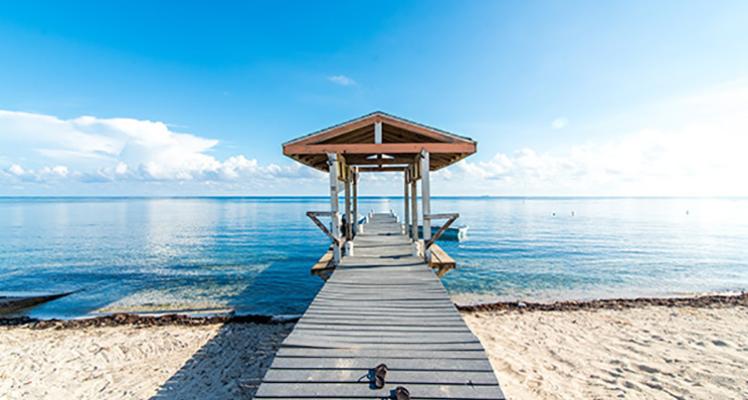This guide to Bermuda immigration includes commentary on the legal framework, business travel, work permits, settlement, dependents, intra-company transfers, new hires, sponsorship, trends and predictions and tips and traps.
The Bermuda Immigration and Protection Act 1956 (BIPA) is the primary legislation that governs corporate immigration in Bermuda. BIPA is supported by a Work Permit Policy (Policy) which provides guidance about how the Department of Immigration and Board of Immigration is meant to administer BIPA.
There are categories of job which are either "restricted" (work permits are limited to one year and subject to enhanced consideration of Bermudian applicants) or "closed" (work permit applications not accepted for specific roles). There are also certain job categories (including child-care giver, and family support roles) which have special conditions and employers must ensure that applicants meet the additional requirements in order to be eligible for a work permit.
The Policy contains an extensive list of which jobs fall into the "restricted" and "closed" categories. For example, the job categories which are currently "closed" include residential/commercial cleaner, bank teller, and general bartender and the "restricted" jobs currently include landscape gardener (entry level), waiter/server, electrician, plumber, general mason. Note that the Bermuda Government can and does extend the list of affected jobs from time to time to reflect Bermuda's job market and economic conditions.
The Department of Immigration is responsible for regulating and administering BIPA and the Policy through the Board of Immigration led by the Minister of Labour (Minister) or Chairman of the Board of Immigration. The ultimate regulator of immigration matters is the Minister.
The Minister has very broad discretion to either withhold permission or grant permission subject to any duration, condition or limitation, without assigning any reason to that decision. In addition, the Minister may extend, revoke, vary or modify the terms of any such permission.
The Government's general approach to immigration is to encourage business immigration where there is an economic benefit to Bermuda and a commitment to provide opportunities for Bermudians, Spouses of Bermudians or Permanent Resident Certificate holders (PRC).
Generally business visitors do not require permission to visit Bermuda provided that:
If the proposed business activities do not fall within those permitted to be undertaken then another option would be a Short Term Work Permit or a Periodic Work Permit.
*The countries that require an MRV are as follows: Afghanistan, Albania, Algeria, Angola, Bangladesh, Belarus, Bolivia, Burundi, Burma, Cameroon, China (People's Republic of), Colombia, Congo (Brazaville), Congo (Kinsasha), Cote d'Ivoire, Cyprus, Republic of (northern part of), Ecuador, Eritrea, Ethiopia, Macedonia (Former Yugoslav Rep. of Macedonia), Gambia, Ghana, Guinea (Rep. of), Guinea-Bissau, India, Iran, Iraq, Jamaica, Kenya, Kosovo (Serbia/Albania), Lebanon, Lesotho, Liberia, Malawi, Moldova (Rep. of), Mongolia, Montenegro (Rep. of), Myanmar (Burma), Nepal, Nigeria, Pakistan, Palestinian Authorities, Rwanda, Senegal, Serbia (Rep. of), Sierra Leone, Somalia, South Africa, Sri Lanka, Sudan, Swaziland, Tanzania, Turkey, Uganda, Venezuela, Vietnam, Zimbabwe.
The requirements are the same but only the activities set out the Policy are permitted some of which relate to specific sectors.
21 consecutive days (subject to applying for an extension for an additional 21 days).
The permitted activities for business visitors are set out in the Policy and some common examples are set out in 2.1 (iii) (a – d) above - Do business visitors need a visa to visit your jurisdiction? What restrictions and exemptions apply in this regard?
Business visitors can enter Bermuda for training in techniques and work practices, provided that the training is conducted by a company affiliated by an ownership relationship and that the training is limited to observation, familiarisation and classroom instruction. Anything beyond this would require a work permit issued by the Department of Immigration.
There are various types of work permits available in Bermuda, specifically: (i) Short Term Work Permit; (ii) Global Work Permit; (iii) New Business Work Permit; (iv) Global Entrepreneur Work Permit; (iv) Standard Work Permit; (vi) Fintech Business Work Permit; and (vii) Periodic Work Permit. In practice, the vast majority of work permits issued are either Standard Work Permits, Short Term Work Permits or Periodic Work Permits:
The specific criteria for each type of work permit is referred to in 3.1 (What are the main types of work permit in your jurisdiction? What restrictions and exemptions apply in this regard?) above. Generally, the Department of Immigration will only grant a work permit to an expatriate if no qualified Bermudians, spouses of Bermudians or PRC holders apply to any advertisements for the role.
If there is a statutory body which regulates the profession in Bermuda (i.e. Chartered Professional Accountants of Bermuda) approval must be obtained in advance of submitting the work permit applications. These statutory bodies are expected to review the qualifications and experience of the applicant and determine eligibility to work in Bermuda.
Any individuals coming to work in Bermuda under the Portuguese Accord as well as those employed in the construction industry are required to have a working knowledge of the English language.
Yes. Some job categories are specified in the Policy as "closed" to work permit application and others are "restricted" or have special conditions attached as referenced above;
The Minister has a high degree of discretion and can waive specific policies upon request or justification for the same. This discretion can specifically apply where there is a known shortage of Bermudians, Spouses of Bermudians or PRC Holders for particular specialised roles;
There is an automatic waiver of the requirement to advertise the role for senior C-suite positions such as CEO or any other Chief Officer;
The new Economic Investment Certificate (EIC) Policy (March 2021) is aimed at attracting investors and high net worth individuals to Bermuda and provides for automatic work permit approval for any such individual to work for the business in which they have invested in, subject to satisfying certain criteria on a continuing basis (including minimum annual residency requirements and continuing to hold a Qualifying Investment). A "Qualifying Investment" is defined as, amongst other things, a direct or indirect equity investment of at least $2,500,000 (BDA dollars) into an existing Bermuda based business, including Bermuda Stock Exchange listed entities (but excluding where the investment is limited to holding listed securities in exempt undertakings) or an investment in a new Bermuda based business. After holding an EIC for five years, the individual would be eligible to apply for a residential certificate which would allow them to reside in Bermuda indefinitely and continue to work the business in which they have made a Qualifying Investment.
Each type of work permit has a specific application form that will need to be completed by the employer. In addition, a first time applicant will need to submit the following documents:
If the applicant is married and their spouse wishes to work, an application to reside and seek work should be made as part of the work permit application and copies of the above documents in relation to the spouse included at the same time.
$966.00 - $6,200.00 (increases per year up to max five years)
$672.00 - $1,019.00 (increases per month up to max six months)
Please note that there is an additional government fee of $168 per person attached to the permit application for the printing of work permit/travel cards.
The completed work permit application together with the supporting documentation must be submitted in hard copy to the Department of Immigration and the relevant application fee paid by wire transfer before the application will be considered.
The Policy provides service level guidelines that: (1) Standard Work Permits should be processed within 20 working days of submission; and (2) All other Work Permits should be processed within 10 working days of submission. However, in practice, we are finding that work permit applications (all types) are regularly taking between 12 and 16 weeks from submission to receipt of the new work permit.
The individual has the right to reside and work in Bermuda for the employer named on their work permit in the designated role for the duration of the work permit. As an employee working wholly or mainly in Bermuda, the work permit holder will benefit from the rights and protections afforded to all employees under Bermuda law (including the Employment Act 2000 and the Human Rights Act 1981).
Where the work permit expires the employer is responsible for (subject to the parties agreeing otherwise in writing) the costs of repatriating the employee and any qualifying dependants (those named on the work permit) back to their country of origin. Upon termination of their work permit, an individual has ninety days to settle their affairs in Bermuda. In certain circumstances, it is possible to apply for an extension of time and/or request permission to reside and seek alternative employment.
If a work permit holder breaches the terms of his/her work permit by undertaking work outside of the remit of the work permit or otherwise, the Minister can revoke, modify or vary the terms of the work permit upon written notice and invite the work permit holder to make representations within 14 days of such notice. If the employer is found to have breached BIPA following an investigation, the Chief Immigration Officer has power to impose a civil penalty of up to $10,000 to both the employer and the employee.
There is no direct pathway for foreign nationals to receive Bermuda status. However, foreign nationals are able to apply for a PRC in certain circumstances. PRC holders obtain certain benefits such as the right to reside and work in Bermuda without having to obtain a work permit. Dependants and spouses of PRC holders can also make subsequent applications for PRCs if certain criteria are met.
An application for a PRC can be made pursuant to the Economic Development Act 1968 for certain senior executives that are considered "Job Makers". In order for a senior executive to become eligible, the company employing the senior executive must apply for designation as a company whose senior executives are eligible to apply for an exemption from needing a work permit.
There are no specific rules for foreign citizens with ancestral connections. Under BIPA, individuals who are "deemed" Bermudian have the right to reside and work in Bermuda without the need for a work permit. However, in certain circumstances, individuals who have Bermudian grandparents may be able to apply for Bermuda status if certain criteria are met.
See response to question 4.1 - What are the criteria for obtaining settlement in your jurisdiction? What restrictions apply in this regard?
The "Job Makers" process referenced in 4.1 (What are the criteria for obtaining settlement in your jurisdiction? What restrictions apply in this regard?) is a three-step process ending with PRC and the total government fees are $70,000 per person for all three steps.
See response to question 4.1 - What are the criteria for obtaining settlement in your jurisdiction? What restrictions apply in this regard?
See response to question 4.1 - What are the criteria for obtaining settlement in your jurisdiction? What restrictions apply in this regard?
A dependant includes: the spouse of a PRC holder or work permit holder; partner of a Bermudian, PRC holder or work permit holder (will need to demonstrate a genuine and subsisting relationship via sworn affidavit); and dependant children of a PRC holder or work permit holder (i.e. under age of 18 or over 18 but under 26 and still in full time education).
A work permit holder that wishes to apply for permission for dependants to reside in Bermuda must evidence that they meet the total household remuneration thresholds of $60,000 (2 person) to $125,000 (4 person) per annum.
Dependants are able to reside in Bermuda and in most instances the work permit holder would apply for permission for his or her dependants to reside in Bermuda at the same time as applying for their own work permit permission.
Long term partners (whether civil/unmarried or same-sex) will be classed as dependants provided that they sign a sworn affidavit attesting to their genuine and subsisting relationship.
Yes. There is a Global Work Permit which allows a person already employed by a global company (i.e. a company in Bermuda that employs people in jurisdictions outside Bermuda but not franchise businesses) in another jurisdiction who wishes to transfer to their Bermuda office without need to advertise the role.
An employer may also apply to the Department of Immigration for permission to establish an exchange internship programme or a graduate training programme in Bermuda where participants from an overseas office can opt to work in the Bermuda office for a period of time. Bermudians, spouses of Bermudians and PRC holders should be given equal opportunity to also participate in the graduate training programme to work in an overseas office outside of Bermuda, which may allow the transfer of qualifying employees to Bermuda on a temporary basis.
Global Work Permits can be granted for a period of up to five years.
For the internship programme and the graduate training programme there is no prescribed maximum stay limit provided but a Short Term Work Permit is required which is limited as per response to 3.2 - What is the maximum stay allowed under each type of work permit? Can this be extended?
For the Global Work Permit the employer must show that the individual is not being transferred to fill a pre-existing position in Bermuda. The application will be automatically approved for individuals with greater than one year's service earning more than $125,000 (BDA Dollars) per annum. If an applicant doesn’t meet this criteria the application will be considered on a case by case basis and must show that they will add value to Bermuda. Not available for job categories listed as "closed" or "restricted" under the Policy.
For the graduate training or intern programme the employer must confirm the identity of the foreign graduate or intern who will be coming to Bermuda as well as:
For the Global Work Permit, see reply to question 3.7 above - What are the formal and documentary requirements for obtaining each kind of permit?
For the graduate training and intern programmes the same documents as referred to in question 6.3 (What criteria must the employer satisfy to obtain a permit under this regime?) above will need to be submitted.
See reply to question 3.6 above - Do any specific rules apply with regard to the following.
See reply to question 3.9 above - What is the process for obtaining a permit? How long does this typically take?
There are no labour market testing requirements under Bermuda law other than the requirement to advertise roles as referenced in 3.3 - What criteria must be satisfied to obtain each kind of permit?
As above, there are no labour market testing requirements under Bermuda law other than the requirement to advertise roles referenced in 3.3 - What criteria must be satisfied to obtain each kind of permit?
Primarily, Standard Work Permits are used for new hires. The fees and application process is as set out under questions 3.8 (What fees are payable to obtain each kind of permit?) and 3.9 (What is the process for obtaining a permit? How long does this typically take?)
No, other than the requirement to advertise the position.
No, new hires will not be able to apply for permanent residence.
There is no concept of sponsorship of foreign nationals under Bermuda law.
The Bermuda Government is currently seeking to reform its immigration practices and make the jurisdiction more accessible and attractive for individuals who want to invest in Bermuda and create opportunities for Bermudians. It has recently introduced the Economic Investment Certificate (March 2021) and the "Work from Bermuda" residential certificate initiative targeting "digital nomads" (which is now in its second year). The Bermuda Government has recently enacted immigration reform to provide a new framework to obtain permanent residency for long-term residents of Bermuda with the ability to apply for a PRC offering security to work and reside in Bermuda without the need for a work permit. The new framework is effective as of 1 December 2021 and the Department of Immigration will be accepting applications for PRC under the new framework as of 1 January 2022.
Businesses should be cognisant of Bermuda's firm immigration requirements under BIPA, nevertheless, Bermuda has implemented certain initiatives to attract international business to Bermuda such as its Job Makers policies and the introduction of the new Economic Investment Certificate. From a work permit perspective, it is key to draft comprehensive and accurate employment advertisements to ensure a smooth process with the Department of Immigration.
Service Area:





Carey Olsen Bermuda Limited is a company limited by shares incorporated in Bermuda and approved and recognised under the Bermuda Bar (Professional Companies) Rules 2009. The use of the title “Partner” is merely to denote seniority. Services are provided on the basis of our current terms of business.
Please note that this briefing is only intended to provide a very general overview of the matters to which it relates. It is not intended as legal advice and should not be relied on as such. © Carey Olsen 2024
Sign up here to receive our news and briefings